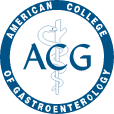Crohn’s disease can cause abdominal pain, fever, diarrhea, skin lesions, and various other symptoms that significantly impact quality of life. Prompt diagnosis and the right treatment can ease the suffering to a great extent.
But, how do you get Crohn’s disease? Doctor Yuriy Israel at Gastroenterology & Nutrition, P.C. says, “Crohn’s disease is an autoimmune disease where your immune system attacks the lining of your digestive tract. It’s often genetic, but environmental factors like diet may also play a role.”
Learn when you need professional intervention and how we can offer betterment.
How Do You Get Crohn’s Disease?
The exact cause of Crohn’s disease is still not fully understood. But research suggests a combination of genetic, environmental, and immune system factors contribute to its development.
The immune system normally defends the body against harmful invaders. However, sometimes it mistakenly attacks healthy tissues. This is called an autoimmune disorder.
When the immune system attacks the digestive tract, the lining of the tract gets inflamed. This condition is known as Crohn’s disease.
What Contributes to Crohn’s Disease?
Crohn’s disease is a type of Inflammatory Bowel Disease and is a result of a dysfunctional immune response. There isn’t one clear cause of Crohn’s, but several factors increase the risk of developing it.
- Genetics: Research has shown that individuals with a family history of Crohn’s disease, particularly those with parents affected by the condition, have a higher risk of developing it.
- Age: Many people are diagnosed with Crohn’s disease the extremes of ages – either in their youth (teens to twenties) or in the older age (above 65).
- Smoking: Smoking is a significant risk factor for Crohn’s disease. Studies indicate that smokers may have nearly double the risk of developing the condition compared to non-smokers.
- Diet and Environmental Factors: An unhealthy diet rich in hyper-processed foods can increase the chance of getting Crohn’s disease. Certain environmental factors, such as exposure to pollution, have been suggested to contribute to an increased risk of Crohn’s disease. More research is needed to fully understand this link.
When Should You Reach Out to Us?
If you are experiencing a flare-up of Crohn’s disease, the symptoms can vary. Contact us right away if you notice any of these:
- Pain or cramping in the lower abdomen
- Blood in your stool or ongoing watery/bloody stool
- Pain or swelling in your mouth or gums
- A constant fever with no clear cause
- Infections near the anus
- Loss of appetite and weight
- Skin issues, like unusual spots or sores
How to Diagnose Crohn’s Disease?
Lab tests, imaging, and endoscopy are the most common methods to diagnose Crohn’s disease.
Lab Tests
These tests include blood and stool tests. Lab tests are used to identify signs of inflammation, infection, or complications such as anemia that may result from Crohn’s disease. Stool tests also help us differentiate between inflammation caused by infections or Crohn’s disease.
Imaging
CT Scan or Computed Tomography Scan is the most common imaging technique to diagnose Crohn’s disease. It scans the gastrointestinal tract to check the level of infection or inflammation. The process may also involve MR Enterography to check the lining of the small intestine.
Endoscopy
A doctor inserts an endoscope through the mouth or a colonoscope through the anus to inspect the gastrointestinal tract. Capsule endoscopy is another effective diagnostic method to look into the small bowel.
Treatment of Crohn’s Disease
Upon successful diagnosis, we may take one or more of the following treatment approaches.
- Short-Term or Symptom-Specific Treatment: We may prescribe steroids to alleviate symptoms such as fever, pain, swelling, and diarrhea.
- Long-Term Treatment: Long-term treatment may involve biologic therapy. These medications help to modify the immune system’s activity to reduce inflammation and prevent flares. These medications specifically target pathways responsible for inflammation.
- Lifestyle Improvement: We provide guidelines to improve the diet and lifestyle that reduce the risk of flares.
Frequently Asked Questions
Q: How do I manage Crohn’s disease?
After diagnosis and treatment, avoid smoking and foods that trigger symptoms. Follow your gastroenterologist’s advice closely.
Q: Is Crohn’s disease fatal?
If managed properly, it does not have to be, but it can cause complications that make life harder. With proper diagnosis and treatment, you can prevent these issues.
Get Relief from Crohn’s Disease with Gastroenterology & Nutrition, P.C.
At Gastroenterology & Nutrition, P.C. in Forest Hills, NY, we understand how challenging Crohn’s disease can be. With our advanced equipment, we diagnose quickly and offer expert care to help you live comfortably. Whether you are experiencing mild discomfort or more severe symptoms, our team is here to provide the care and support you need. Call us today and let us help you find relief!
Disclaimer
This article is for educational purposes only and is not medical advice. Consult your physician for any medical concerns or before starting any treatment. Do not ignore professional medical advice due to the information read here. The authors are not responsible for any outcomes from the use of this information.





